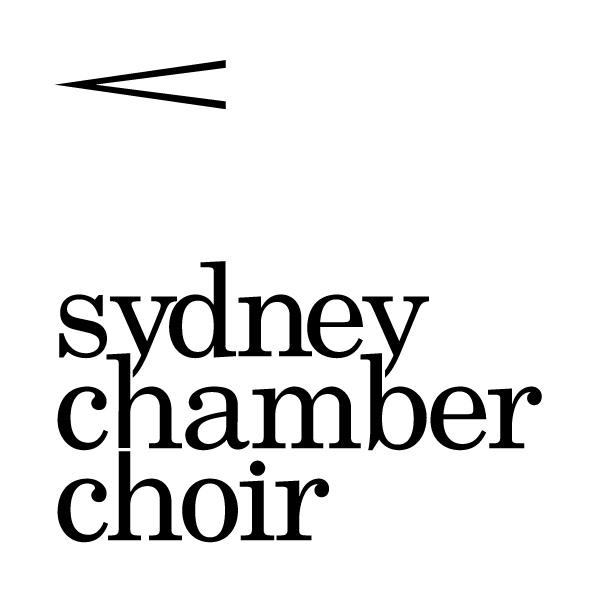Composer Profile: Elliott Gyger
Elliott Gyger graduated with his Bachelor of Music from the University of Sydney in 1990 before pursuing further studies at Harvard. Today he is one of Australia’s most distinguished composers and teaches composition at the University of Melbourne.
During his undergraduate years, Gyger was very much aware of Sydney Chamber Choir. “I sang in a couple of concerts in the late 80s under Nicholas Routley when he was expanding the group.” The Choir was a benchmark for any choral ensemble hoping to set up shop in Sydney. “Having a choir of such accomplished musicians enables me to write more challenging repertoire… because I know they’re capable of performing it.”
Sydney Chamber Choir’s first program for 2019, Music on Music (7.30pm, Saturday 30th March) will feature Elliott Gyger’s Ut Queant Laxis. Based on a Medieval chant and texts from the Gospel of Luke, Ut Queant Laxis continues a long tradition of composers writing about music itself.
Inspirations for Gyger’s music often comes from texts. However, that’s not his primary motivation to compose. “I write music for its own sake. It’s stimulating, like solving three crosswords puzzles at once. I have a craft and it still feels mysterious to me - the way some combinations of notes and rhythms are really beautiful and others don’t work. The process of composition is finding those beautiful things.” His composition Ut Queant Laxis is a major example of that distilled beauty.


Zechariah, the father of John the Baptist, holds his infant prophet son in this 1535 work of Teramo Piaggio.
The Medieval chant text starts with the invocation:
So that your servants may, with unfettered voices,
Make the wonders of your deeds resound …
It’s a prayer for the ability to sing – a divine gift, which shouldn’t be taken for granted. The idea of the voice as heavenly grace returns later in the text. Zechariah, the father of John the Baptist, has his voice taken away because he didn’t believe in the Angel’s pronouncement that his 90-year-old wife was pregnant. But how to depict the absence of a voice in choral music? Gyger achieves this through whispering, which also serves to highlight the important syllables in the chant at the beginning. This particular chant is of great interest to musicians, being the origin of the Solfege system, which is still widely used in music education today.
The work opens with the alto singing this chant starting on a middle C. More voices join in later on, expanding the range until, by the conclusion of the piece, it covers all the registers of the choir and accompanying organ. Gyger acknowledged that this opening was partly inspired by Benjamin Britten’s Rejoice in the Lamb, which is also featured in the programme.
Elliott Gyger was influenced by many great composers before him. One in particular is Elliott Carter, whose piece Musicians Wrestle Everywhere also forms part of this program. Throughout his long career, Carter was fascinated by texts, especially American poetry. He wrote a great number of vocal music, and was still writing right up until the end of his life at the extraordinary age of 103. “I could hope only to aspire to that” says Elliott.
Ria Andriani
. . . . . . . . . . . . . . . . . . . . . . . . . . . . . . . . . . . . . . . . . . . . .
We hope you'll join us at 7.30pm on Saturday, 30th March for what promises to be a wonderful concert at Great Hall - University of Sydney.
Image by Sav Schulman, 2017.

